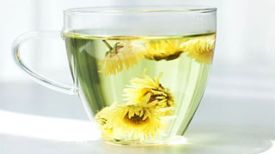
Because of its high incidence rate, high mortality, high disability rate, high recurrence rate and many complications, stroke is called the first killer of Chinese health and the first cause of death of Chinese residents. A study has found that supplementing with a nutrient can reduce the level of homocysteine in the blood, effectively preventing the occurrence of stroke. This nutrient is folate.
Folic acid is not only related to pregnancy, but also to common cancers, strokes, and Alzheimer's disease! Professor Huang Zhengming, President of the China Medical Education Association, said, "Folic acid plays an important role in the occurrence and development of multiple diseases, but there is insufficient understanding of its value in clinical practice in China
According to incomplete statistics, one in every five Chinese people lacks it, but many people are not aware of its importance. After reading this article, it's time to take it seriously~
Supplementing with folic acid brings many benefits
Folic acid, also known as vitamin B9, is one of the essential vitamins for cell growth and reproduction in the body. It can participate in the entire process of human metabolism and is also an essential micronutrient for human growth and development.
01 Folic acid and stroke
Data shows that the proportion of folic acid deficiency among Chinese residents is as high as 20% to 60%. Lack of folate intake in the human body can easily lead to an increase in homocysteine levels in the blood, which is one of the important causes of stroke. Folic acid can reduce homocysteine in the blood, help enhance vascular elasticity, improve endothelial function, prevent chronic cardiovascular diseases such as coronary heart disease, and effectively reduce the risk of stroke.
02 Folic acid and senile dementia
Folic acid can help improve the memory of elderly people and reduce their risk of developing early-onset dementia.
A study in the United States found that people with low levels of folate in their blood are more likely to develop Alzheimer's disease, have poor brain function, poorer cognitive abilities, and perform poorly on memory tests.
03 Folic acid and cancer
A study on the Taihang Mountains region, which has the highest incidence of esophageal cancer in China, found that supplementing folic acid can reduce the risk of esophageal cancer.
Experts suggest that people with chronic atrophic gastritis, especially autoimmune gastritis, can use dietary or medicinal folic acid supplements to help prevent the development of chronic atrophic gastritis into gastric cancer.
In addition, a study by the Chinese Academy of Sciences found that women whose dietary intake of folate ranged from 153 μ g/day to 400 μ g/day had a lower incidence rate of breast cancer than women whose folate intake was less than 153 μ g/day or more than 400 μ g/day. In other words, an appropriate amount of folic acid intake can effectively reduce the incidence of breast cancer.
04 Folic acid and anemia
As age increases, the hematopoietic system will undergo a certain degree of degeneration. In addition to iron deficiency leading to anemia, a lack of folic acid can also cause anemia.
05 Folic acid and diabetes
Folic acid can improve insulin sensitivity and reduce the risk of diabetes.
For middle-aged and elderly people, it also plays a crucial role, but when supplementing with folic acid, it is important to note that the more folic acid, the better. Supplementing with more than 1000 micrograms per day can increase the risk of cancers such as colorectal cancer and prostate cancer! So everyone will find that we usually use micrograms to express the intake of folic acid, because folic acid cannot be supplemented too much, and the daily intake of folic acid should be within 1000 micrograms.
And the folic acid supplements on the market have different specifications, and the dosage can even differ by more than ten times. Everyone must pay attention when purchasing.
Is there any way to supplement folic acid safely without exceeding the standard? Folic acid is generally divided into three categories: natural folic acid, compound folic acid, and active folic acid. Among them, natural folic acid is the closest to our daily lives. Natural folate is the folate found in various animals and plants, and we mainly rely on "eating" to supplement it.
There are three types of 'natural folic acid' hidden around me
Folic acid is widely distributed in green leafy plants, as well as in animal foods, fruits, and yeast. However, its content is relatively low in root vegetables and pork. Today, we will list 3 vegetables with high levels of natural folate, which can protect the heart, stabilize sugar, prevent stroke, and even alleviate anemia. Everyone, hurry up and save them!
01 Chrysanthemum
Chrysanthemum herb, also known as artemisia stem or mugwort, is also known as chrysanthemum vegetable because its flowers resemble wild chrysanthemums. Despite its unremarkable appearance, it is rich in nutrients. According to the Compendium of Materia Medica, chrysanthemum is known for its calming effects on the heart and qi, nourishing the spleen and stomach, reducing phlegm and promoting digestion. Therefore, it was still a court dish in ancient times, also known as "emperor's dish".
The folic acid content of chrysanthemum is 114.3 micrograms/100g, and it is rich in vitamin E and potassium elements. Eating more chrysanthemum can also have antioxidant and blood pressure balancing effects for the elderly, helping digestion and prolonging life!
In addition, chrysanthemum is rich in vitamins, carotenoids, and various amino acids, which can nourish the heart, calm the mind, lower blood pressure, nourish the brain, clear blood and phlegm, moisten the lungs and liver, stabilize emotions, and prevent memory loss.
How to eat chrysanthemum to better utilize its nutritional value? Because its aromatic substances are easily volatile at high temperatures, it is recommended to pair it with garlic, which can kill bacteria and prevent colds, and stir fry it quickly over high heat to retain more nutrients.
Garlic puree and chrysanthemum
Ingredients: Chrysanthemum, Garlic, Edible Oil, Salt, Thirteen Fragrances, Sichuan Pepper Powder
Method:
1. Wash and dry the chrysanthemum, set aside minced garlic.
2. After heating the oil in the pot, add a small amount of minced garlic and stir fry until fragrant. Then add the part of the chrysanthemum stem and an appropriate amount of salt, stir fry evenly.
3. Add the leaves of chrysanthemum, a small amount of thirteen spice and Sichuan pepper powder, continue stir frying evenly, cover the pot and let it sit for a while before serving.
Attention: Chrysanthemum has a fragrant and smooth aroma, and has the effect of regulating qi in the middle. People with spleen deficiency and slippery stools should not eat too much.
cabbage
Cabbage, also known as cabbage or cabbage, has a folate content of 240 micrograms per hundred grams, which is among the highest in common vegetables! It is recommended that expectant mothers and middle-aged and elderly people should eat more cabbage in moderation.
In addition to its high folate content, Chinese cabbage is also known as a "natural stomach nourishing medicine" for its ability to nourish the stomach. Cabbage contains an anti ulcer agent - vitamin U, which can help repair the gastric mucosa. In addition, it contains nutrients such as vitamin B1 and B2, which enhance its protective effect on the stomach. Regular consumption can reduce the risk of stomach diseases.
According to the Compendium of Materia Medica, cabbage has the effects of "promoting joint health" and "strengthening muscles and bones". This is because the vitamin K contained in cabbage has the function of strengthening muscles and bones. Each hundred grams of cabbage contains 76 micrograms of vitamin K, which can meet 95% of the daily requirement of ordinary adults. It is suitable for elderly and female people who are prone to calcium deficiency to consume.
Vinegar soaked cabbage
Ingredients: Cabbage, dried chili, garlic, vinegar
Method:
1. Tear the cabbage by hand and set it aside.
2. After heating the oil, add garlic slices and dried chili peppers and stir fry until fragrant.
3. Pour in the cabbage and stir fry, then add a little salt and vinegar.
Attention: Cabbage contains a large amount of coarse fiber, which is hard and easy for people with diarrhea symptoms to eat in moderation. People with skin itching and eye congestion symptoms should not consume it.
Is cabbage prone to pesticide residues?
People often say that 'cabbage is a vegetable that exceeds pesticide standards', which is mainly due to the use of' heart filling 'pesticides.
In fact, cabbage is difficult to be "irrigated" with pesticides because during its growth process, the leaves inside are first wrapped and slowly grow, and the leaves are all wrapped together and cannot be "irrigated".
If you are concerned about pesticide residue, let's peel off one or two leaves that are prone to pesticide residue on the outside before cleaning, cut them open, soak them in clean water for a while, and then clean them again. Generally, there will be no problem with pesticide residue.
Spinach
Spinach is also a seasonal vegetable nowadays, cheap and delicious, known as the "nutritional model student" due to its rich nutrition. Moreover, folic acid was first discovered in spinach.
Spinach has a folate content of 194 micrograms per 100 grams, and its crude fiber content is low, making it easily absorbed and utilized by the human body. Therefore, it is recommended to consume spinach regularly to supplement folate.
In addition, among common vegetables, spinach has the highest magnesium content, reaching 58mg/100g, and is also rich in potassium, with 311mg/100g. Therefore, eating spinach regularly can have a good effect on strengthening the heart and stabilizing blood pressure.
I recommend everyone to eat more spinach, wolfberry, and pork liver soup in spring. The vitamin A in spinach is very good for protecting vision, goji berries nourish yin and improve vision, and pig liver is also good for the eyes.
Spinach and Pig Liver Soup
Ingredients: spinach, pork liver, wolfberry, ginger, sesame oil, starch, salt in moderation
Method:
1. Soak pig liver in cold water and cut it into thin slices. Add a little salt, cooking wine, and starch and mix well.
2. Wash the spinach and cut it into small sections for later use. Cut ginger into shreds.
3. Boil water in a pot, add pork liver, and after it changes color, add shredded ginger, spinach, and wolfberry. Once cooked, add a spoonful of salt and sesame oil to season.
Attention: Spinach contains a certain amount of oxalic acid, which can interact with calcium to produce a certain amount of calcium oxalate. Calcium oxalate cannot be absorbed by the human body, which not only affects the body's absorption of calcium, but also increases the risk of stone disease. So be sure to blanch spinach in hot water before eating.


